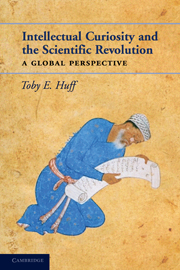Preface
Published online by Cambridge University Press: 05 June 2012
Summary
Those who think about the long cycles of science and civilizations and the question of why the Western world succeeded as it did may need to anchor their speculations in several mundane facts. When the scientific revolution occurred in the seventeenth century, the United States of America did not yet exist. In 1609, when Galileo made his revolutionary telescopic discoveries, a hardy band of English settlers attempted to establish the Popham Colony on the forbidding coast of Maine. Owing to the harsh winters of New England, the ill-fated colony was gone a year later.
In 1776, when the thirteen colonies banded together to form the United States, the inhabitants of those often wilderness regions numbered perhaps six million. China and India at the time counted more than 100 million subjects each, dwarfing the population of the struggling American colonies. No one would have predicted that the educational, political, and economic institutions being fashioned in those embryonic United States would propel it to become the dominant power in the twentieth century.
- Type
- Chapter
- Information
- Intellectual Curiosity and the Scientific RevolutionA Global Perspective, pp. ix - xiiPublisher: Cambridge University PressPrint publication year: 2010



